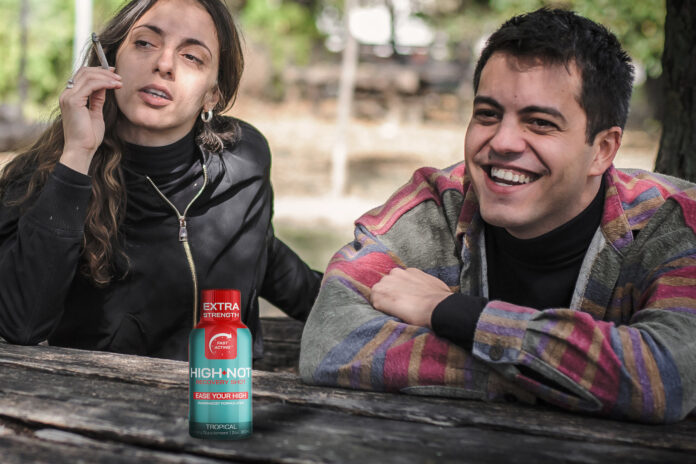The essence of cannabis branding is not complicated. At its most basic, a company’s or product line’s brand consists of a name, visual identity (logo and packaging), messaging tone, unique selling proposition, and the story of how it came to be and where it intends to go. Combining all those elements, along with product quality, allows brands to differentiate themselves from their competitors.
But in today’s highly competitive market, differentiation via traditional branding elements simply isn’t enough. The most enduring brands create emotional connections with consumers, often by actively listening for the lifestyle, social, or moral/ethical values their target market embraces and making a conspicuous display of their own devotion to those same things. What’s more, powerful brands often partner with other brands that have similar core customers and are values-aligned, allowing both partners to benefit from the respect reflected by the other’s brand.
Emotional resonance is impacted by every aspect of a company’s operations and policies, from its location to the origin of product components and how employees are treated. Poor or attitudinal customer service, corporate leaders who broadcast controversial opinions, and abusive working environments all have made major dents in once-respected brands. Just ask Comcast, Twitter, and Uber, respectively. Even the behavior of a company’s sources and subcontractors can reflect negatively on its brand, as candymakers Nestlé, Mars, and Hershey’s discovered when watchdogs revealed the companies’ products incorporate cacao produced on plantations that use slave labor. Turns out consumers care about things like honesty, fairness, and human rights.
Successful, thriving companies constantly monitor the response to the elements of their brand. They innovate and evolve visually and emotionally to remain relevant, always looking for new ways to strengthen their bonds with the consumers they already serve and those they have yet to reach.
The ten brands on the following pages provide examples of branding strategies that go beyond the ordinary.
Hemper x Fred Segal
Kindred spirits
Designer and retailer Fred Segal defined “California style” and redefined retail as the originator of the shop-in-shop concept. Hemper popularized the cannabis subscription box by partnering with celebrities to create curated collections. A collaboration between the two cultural innovators seemed written in the stars. The challenge was ensuring neither’s identity or market disappeared behind the other’s.
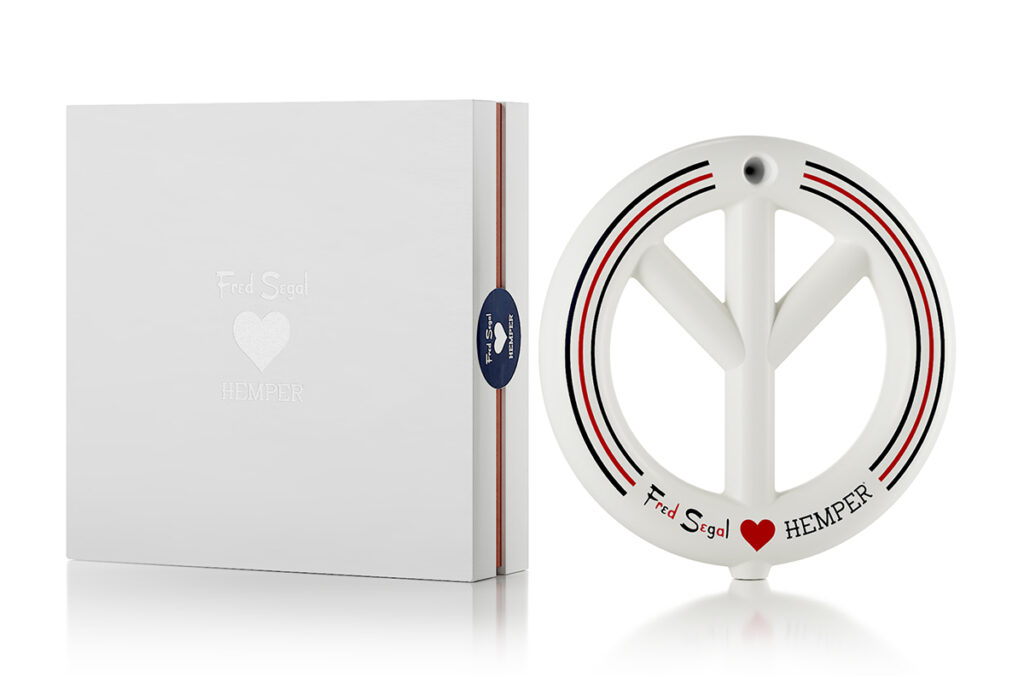
They pulled it off with the Hemper x Fred Segal collection, a curated line of smokeware in Segal’s signature red, white, and black, infused with Hemper’s youthful joie de vivre. According to Bryan Gerber, co-founder and chief executive officer at Hara Brands, Hemper’s corporate parent, both brands are known for pushing the envelope and “creating new lanes.” The partnership works because the companies’ pioneering reputations are similar, allowing each to attract the other’s audience while not alienating its core customer base.
MJ Attaché
Uncommon details
Denver-based MJ Attaché launched in April with its focus squarely on the carriage trade. Everything about the brand, from product to logo, marketing materials, social media presence, and artfully designed website, treats consumers to mindful luxury.
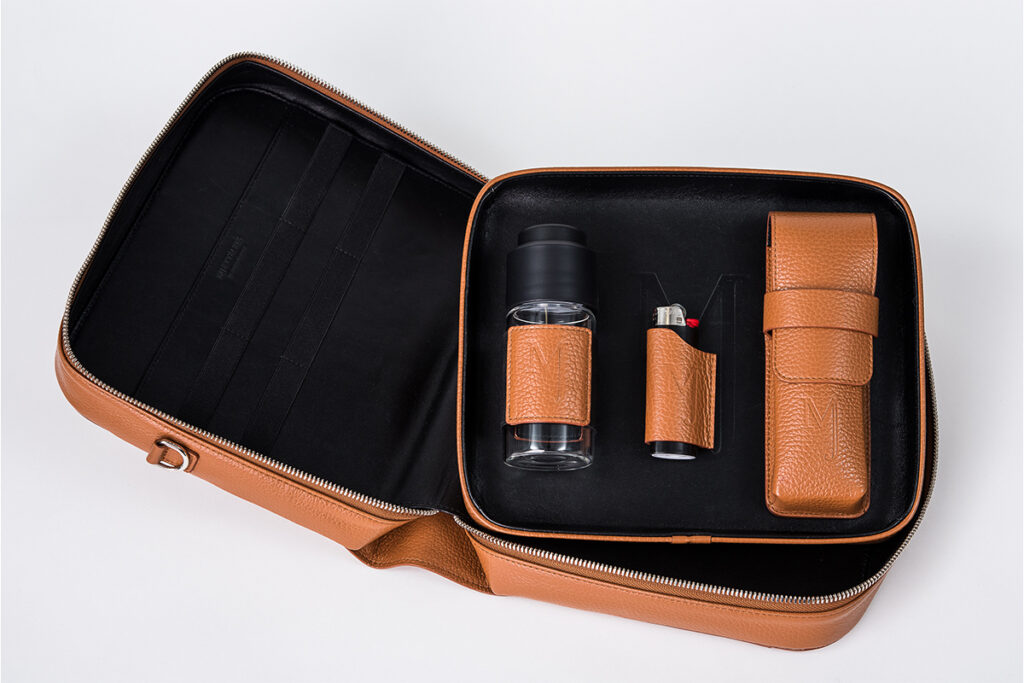
The brand’s debut product arose from founder Christy Fuicelli’s frustration with the dearth of stylish accessories that are both functional and refined. Unable to find a portable stash container that reflected the sophistication and elegance of her lifestyle, she embarked on an eight-year journey to create one. The result: The Anthony, a $2,150 attaché handcrafted by leather artisans in the foothills of Tuscany.
The bag is exquisite, the marketing pitch-perfect, but it’s the detail about artisans in the foothills of Tuscany that sells the product.
Fable
Pinpoint targeting
“A fine alcoholic drink has mouthfeel, viscosity, and a layered flavor profile,” according to Ben Kennedy, who co-founded infused beverage brand Fable with his wife, Kristin. So, working alongside a culinary council of chefs and mixologists, the pair refined Kristin’s kitchen mocktail recipes until they developed four formulations that mimic the taste and experience of classic mixed drinks—but without the alcohol.
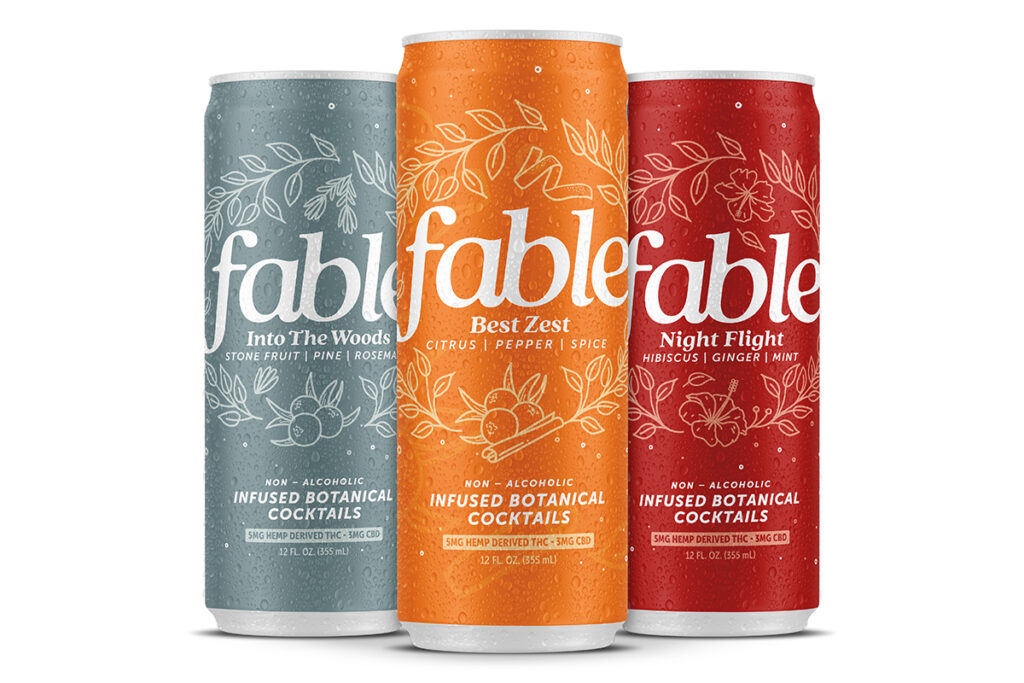
The brand’s specificity about its target market—cocktail connoissuers, not beer drinkers or wine devotees—is reflected in everything it does, from its blog to its Instagram community and appearances at trade shows. Even the cans, eye-catching but subdued, send the message this is a product for people who appreciate sophistication in their adult beverages.
Zig-Zag
Updating Traditions
Zig-Zag has manufactured rolling papers for more than 140 years, and the original graphical elements of the brand’s identity are still in use today. The iconic Zig-Zag man, based on a folk tale about a quick-thinking Zouave soldier, debuted with the first product. The intricate, ornate patterns embedded in the papers are the original designs, too. Despite changes in ownership over the years, the company’s visual traditions convey a sense of permanence, stability, and reliability.
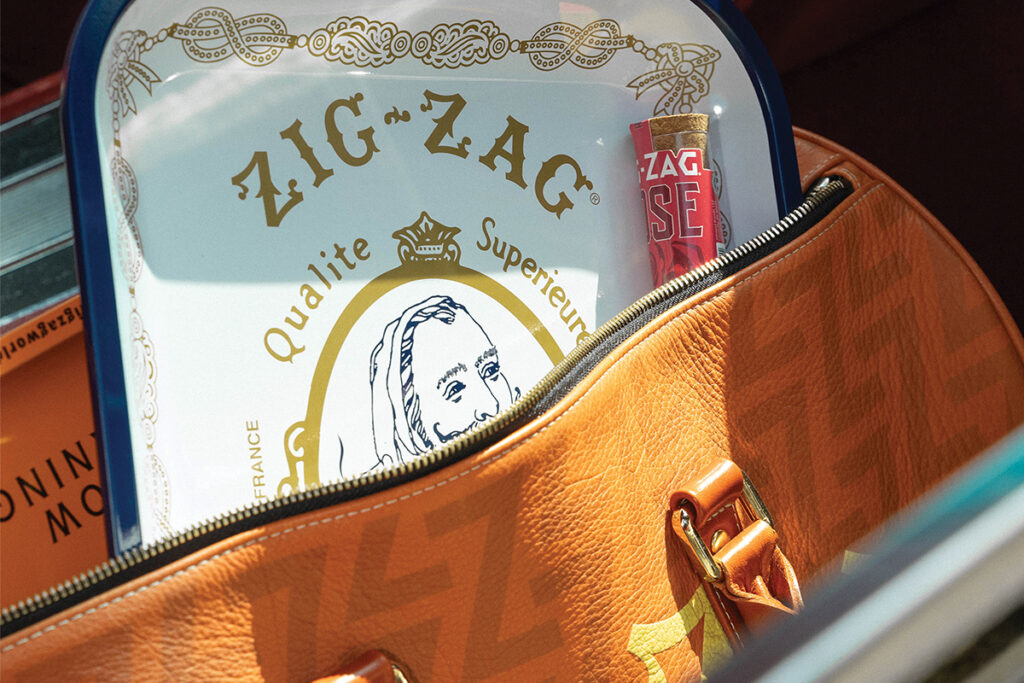
Today, Zig-Zag sells more than rolling papers, and everything—trays, grinders, other accessories, and clothing—is emblazoned with the same mythical French soldier who launched the brand. So is Zig-Zag Studio, “a media platform … inspir[ing] the world of tomorrow by uplifting the innovators of today.” Because for Zig-Zag’s fans, tradition isn’t synonymous with hidebound.
Kush Queen
Close-knit community
Kush Queen grew from a wellness-focused online community founded by social-media influencer Olivia Alexander. Together with cultivator and co-founder Michael Sawyer, she turned a devoted fan base into a multimillion-dollar company offering THC- and hemp-infused self-care products. The community cheered every success and mourned every loss right alongside the founders. “People feel connected because I let them into the journey,” Alexander said. “There is power in vulnerability as an entrepreneur, and there is power in the journey for brands.”
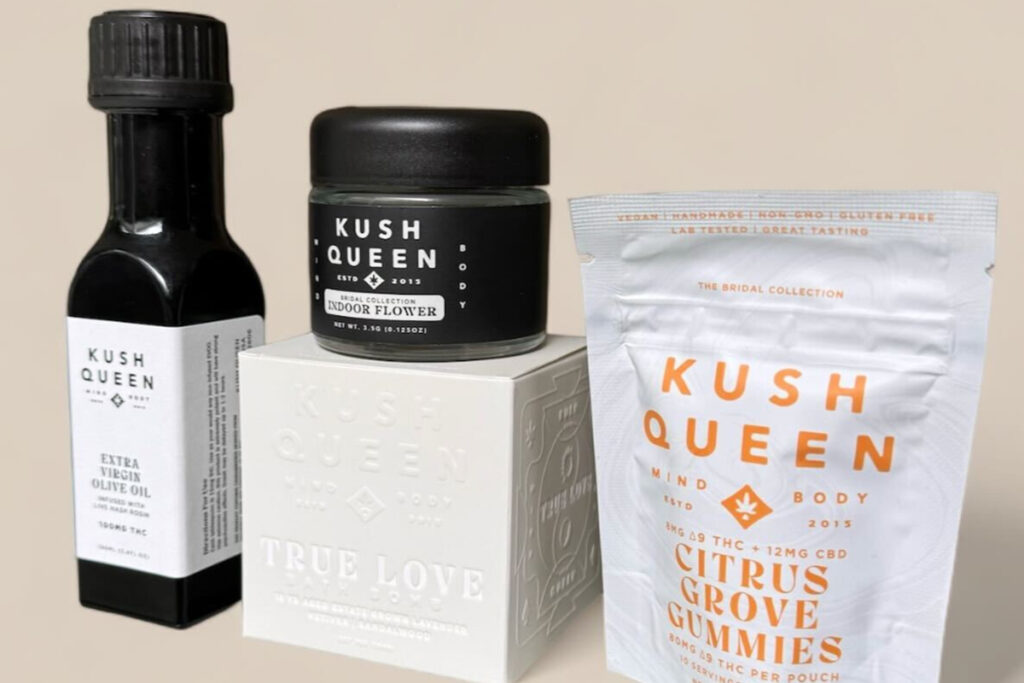
As the product line expanded, so did the founders’ relationship. The company recently celebrated the couple’s impending nuptials with a “bridal shower” for its latest lineup: the Bridal Collection, which includes products for couples to enjoy together. Befitting the occasion, the bath bombs, flower, gummies, and infused olive oil are dressed in elegant tuxedo black and wedding white.
Wynk
Familiarity breeds comfort
Ever since Wynk debuted in 2020, the infused seltzer has styled itself as a social beverage for the young, trendy, and culturally aware. Everything about the brand, from the recently updated can design to its marketing collateral and social media presence, is designed to appeal to health-conscious urban professionals, who are primary drivers of the “social-but-sober” movement.
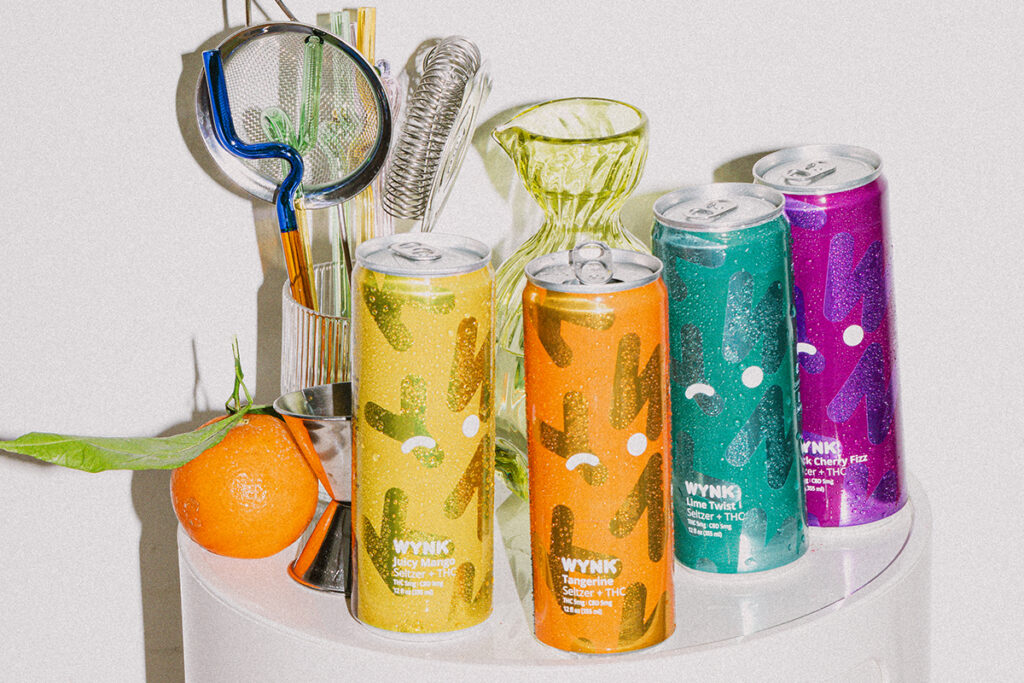
Part of Wynk’s appeal is the beverage’s availability in an expanding network of venues traditionally associated with alcohol consumption. The brand is served in bars and restaurants in fourteen states, including hip spots like Chicago’s 2Bears Tavern and Boston’s Cask ’n Flagon. Consequently, consumers don’t have to change their favorite hangouts to remain true to their sober lifestyle.
The arrangement creates a win-win scenario: Not only do the establishments attract new customers by offering an alcohol alternative, but Wynk also is introduced to a new audience in a familiar, comfortable environment.
Juniper
Family values
Single mother Jennifer Appel was a woman on a mission when she founded her craft brand Juniper—so much so that she literally hit the streets herself to get her product into dispensaries. Twenty-two years later, Appel and her children run the business together, “walking lightly on the Earth” on their farm in Humboldt County, California. The sungrown crops are organic and tended by hand, and the product—pre-rolls filled with AAA flower—is handcrafted and lauded for capturing the area’s unique terroir. The packaging comprises tins and glass to promote sustainability.
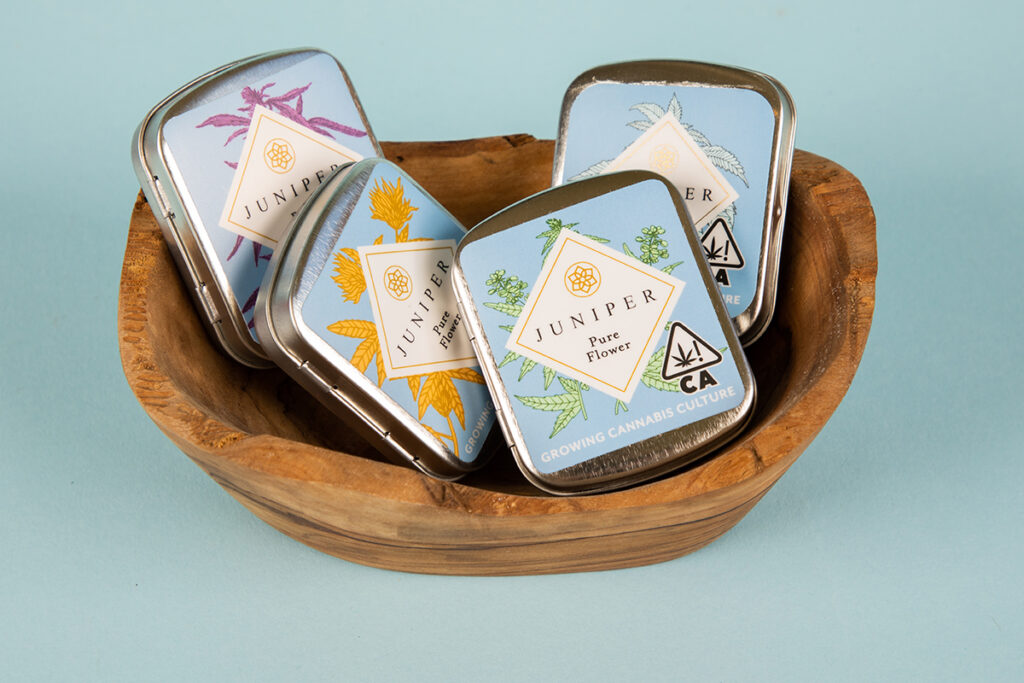
“As a family, we are captivated by the lifestyle, community, and culture that is our home and produce cannabis that is a living, breathing embodiment of this magical place,” Appel said.
The family’s devotion to traditional cannabis culture and Earth-friendly practices creates a strong bond between the brand and its fans.
High-Not
High on science
A veteran of industry stalwarts including Charlotte’s Web, Antoine Awwad is acutely aware consuming infused products sometimes can lead to unexpected reactions, especially with potency on the rise. After his seventy-six-year-old mother-in-law experienced a frightening response to a common gummy, resulting in a hospital visit and a whopping $11,000 medical bill, Awwad and a doctor of pharmacy worked together to develop High-Not, a fast-acting, water-soluble shot of electrolytes and terpenes that helps restore mental clarity and physical comfort by outcompeting THC in the endocannabinoid system.
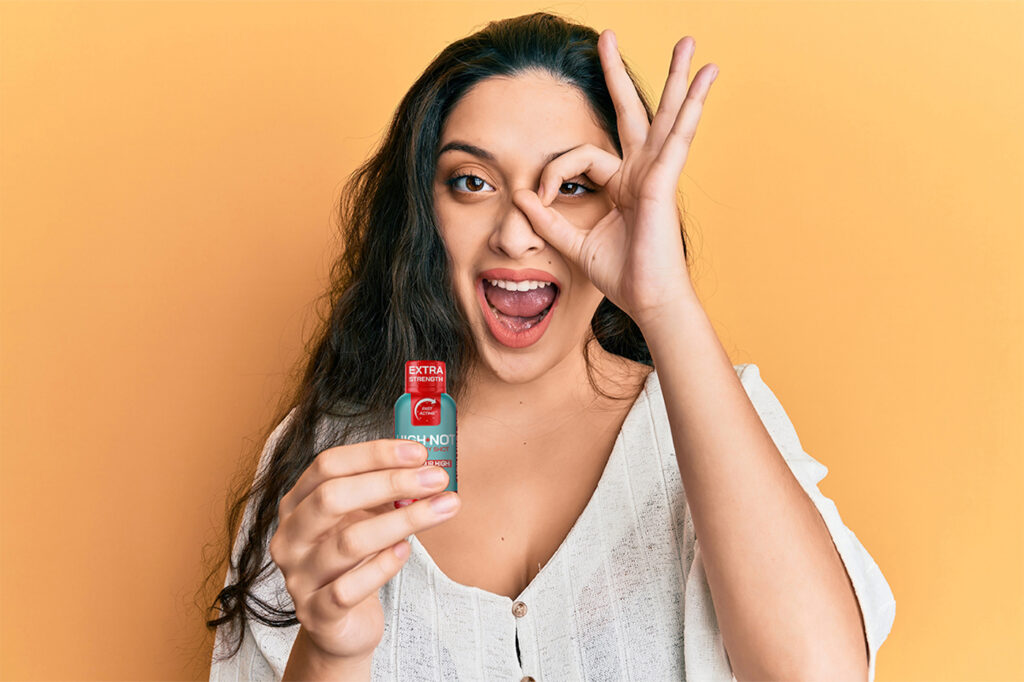
The product’s medicinal-looking bottle telegraphs safety and efficacy. The story behind the product seals the deal.
Stayme7o
Taking a stand
Celebrity brands always attract attention, but when the brand represents a partnership between a professional athlete of Carmelo Anthony’s stature, industry royalty like Jesce Horton, and filmmaker Brandon Drew Jordan Pierce, consumers can’t look away.
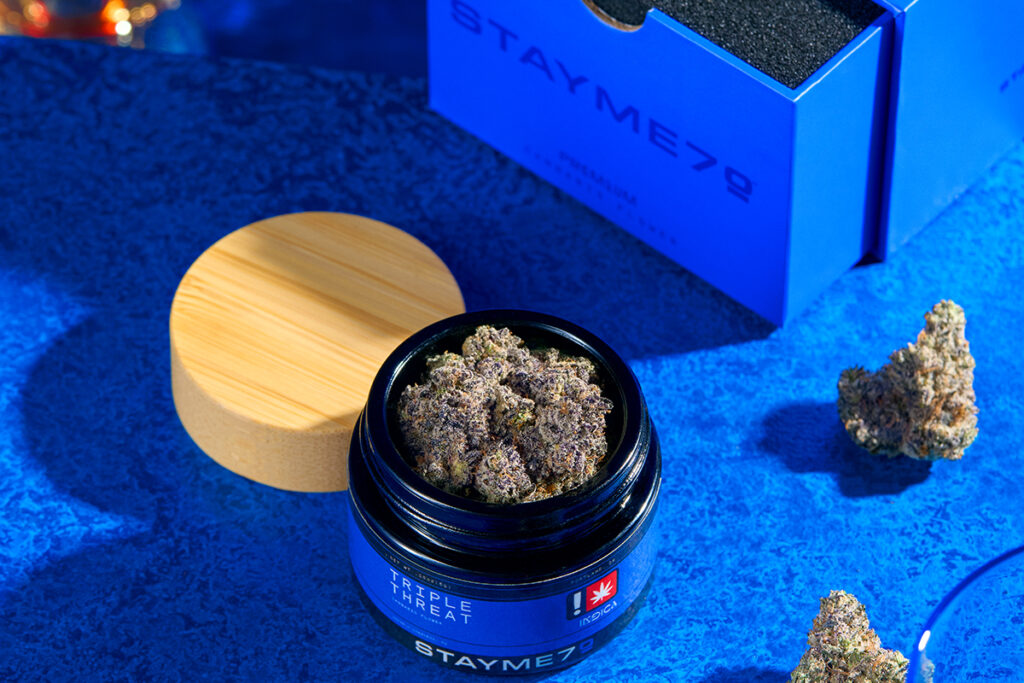
The trio’s first launch is Anthony’s flower brand Stayme7o (“stay mellow”), a play on his first name and the number he wore for most of his nineteen seasons in the National Basketball League. The brand’s moniker and its sophisticated packaging also encapsulate the ten-time NBA All-Star’s philosophy. “Stayme7o is more than a product,” he said. “It’s a mindset—a commitment to staying present and grounded.”
The brand’s mission resonates with socially conscious consumers: A portion of Stayme7o’s proceeds are devoted to assisting communities harmed by the war on drugs. At a time when even the industry is divided about drug policy, Stayme7o leaves no doubt about where it stands.
Gelato Canna Co.
Leading with heart
George and Cody Sadler operate their business by a simple motto: “Do what is right over what is easy.” For the father-son duo behind Gelato Canna Co., doing what is right means more than complying with regulations and giving customers a dose of colorful fun with their THC. Gelato also lends a hand to those in need.
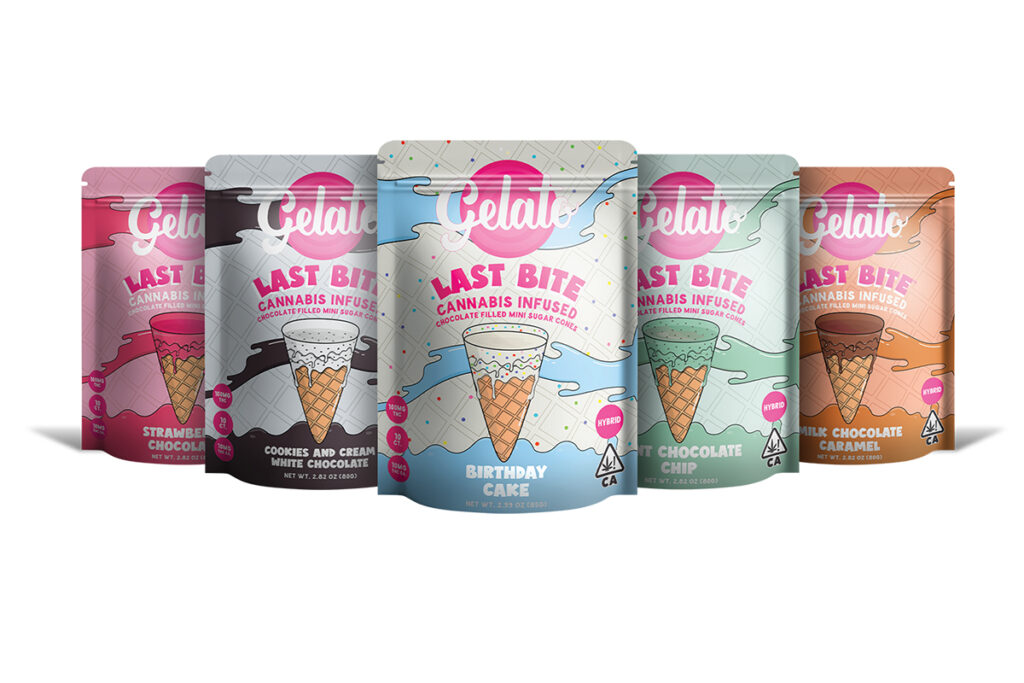
The company’s most recent project benefits award-winning professional surfer and filmmaker Greg Browning, known to his fans as Geebs, who was diagnosed with amyotrophic lateral sclerosis (ALS) in 2023. Proceeds from the sale of Geebs by Gelato gummies and pre-rolls go to support Browning’s medical care. In April, the company distributed Gelato-branded tents, personal care items, blankets, and hot meals to the unhoused in downtown San Diego. The Sadlers frequently engage in large-scale charitable activities, usually focused on easing homelessness and food insecurity.
By branding its gifts with Gelato’s logo and signature hot-pink color, the company draws attention to causes and its brand at the same time.







